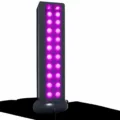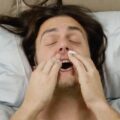Snoring can be a significant disruptor of a good night’s sleep, not just for the snorer but also for their sleeping partner. With the myriad of anti-snoring devices on the market, it can be challenging to choose the right one to help you achieve peaceful sleep. This comprehensive guide will introduce you to some of the best anti-snoring devices available, helping you and your loved ones enjoy uninterrupted, restful nights.
Understanding the Causes of Snoring
Before diving into the various devices, it’s essential to understand what causes snoring. Snoring occurs when the flow of air through the mouth and nose is physically obstructed. Factors contributing to snoring include the anatomy of your mouth and sinuses, alcohol consumption, allergies, a cold, and your weight.
Mandibular Advancement Devices (MADs)
Mandibular Advancement Devices (MADs) are among the most widely used anti-snoring devices. They work by pushing the lower jaw slightly forward, which helps keep the airway open and reduces the risk of snoring. These devices are often customizable for a comfortable fit.
Tongue Stabilizing Devices (TSDs)
TSDs work by holding the tongue in place, preventing it from falling back into the throat and obstructing the airway. They can be particularly useful for people who snore because their tongues tend to relax too much during sleep.
Continuous Positive Airway Pressure (CPAP) Machines
CPAP machines are typically used for treating sleep apnea, which can cause snoring. These devices provide a steady stream of air through a mask, keeping the airways open. While highly effective, CPAP machines can be bulky and require a consistent power source.
Nasal Dilators and Strips
Nasal dilators and strips can help reduce snoring by enhancing air flow through the nasal passages. These are simple, non-invasive devices that can be a good starting point for those who snore due to nasal congestion or blockages.
Custom-Fit Anti-Snoring Mouthpieces
For a more personalized solution, custom-fit anti-snoring mouthpieces can be made by a dentist. These devices are tailored to the specific shape of your mouth and teeth, providing a comfortable and effective way to prevent snoring.
FAQ about Anti-Snoring Devices
Are anti-snoring devices comfortable to use?
Comfort varies depending on the type of device and the individual. However, many devices are designed with comfort in mind and can be adjusted to fit the user’s mouth or nose.
Can anti-snoring devices cure snoring permanently?
While anti-snoring devices can significantly reduce or eliminate snoring, they typically need to be used every night for continued effectiveness. They do not usually provide a permanent cure.
Do I need a prescription to buy an anti-snoring device?
Many anti-snoring devices can be purchased over the counter without a prescription. However, devices like custom-fit mouthpieces and CPAP machines may require a prescription and professional fitting.
Are there any side effects to using anti-snoring devices?
Some individuals may experience side effects such as dry mouth, tooth discomfort, or excessive salivation when they first start using anti-snoring devices. These side effects usually diminish with time as the body adjusts to the device.
How do I choose the right anti-snoring device for me?
Choosing the right device depends on the cause of your snoring, your preferences, and any underlying health conditions. It’s best to consult with a healthcare provider to help determine the most suitable option for you.









